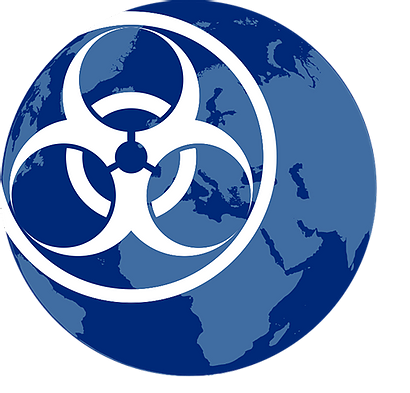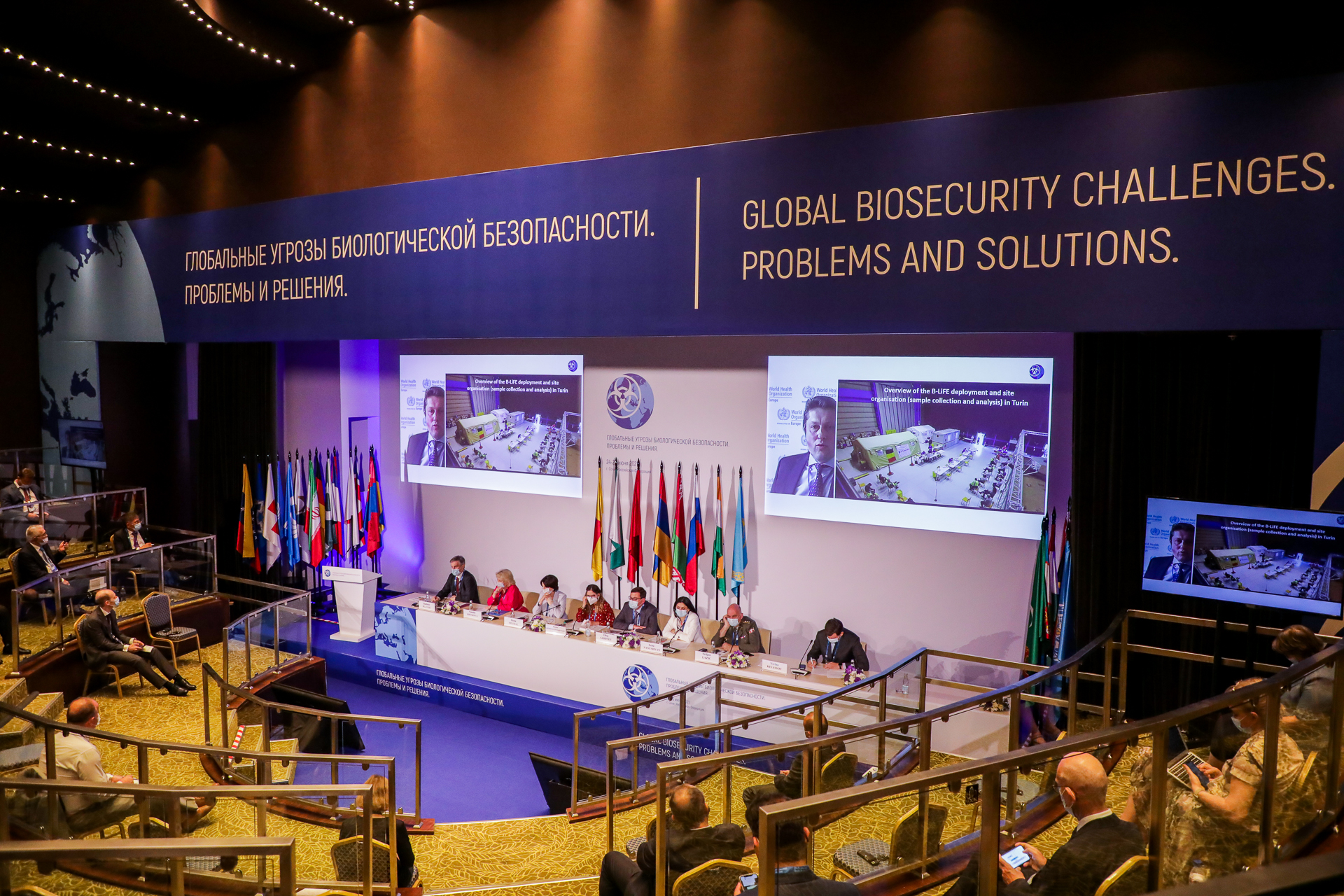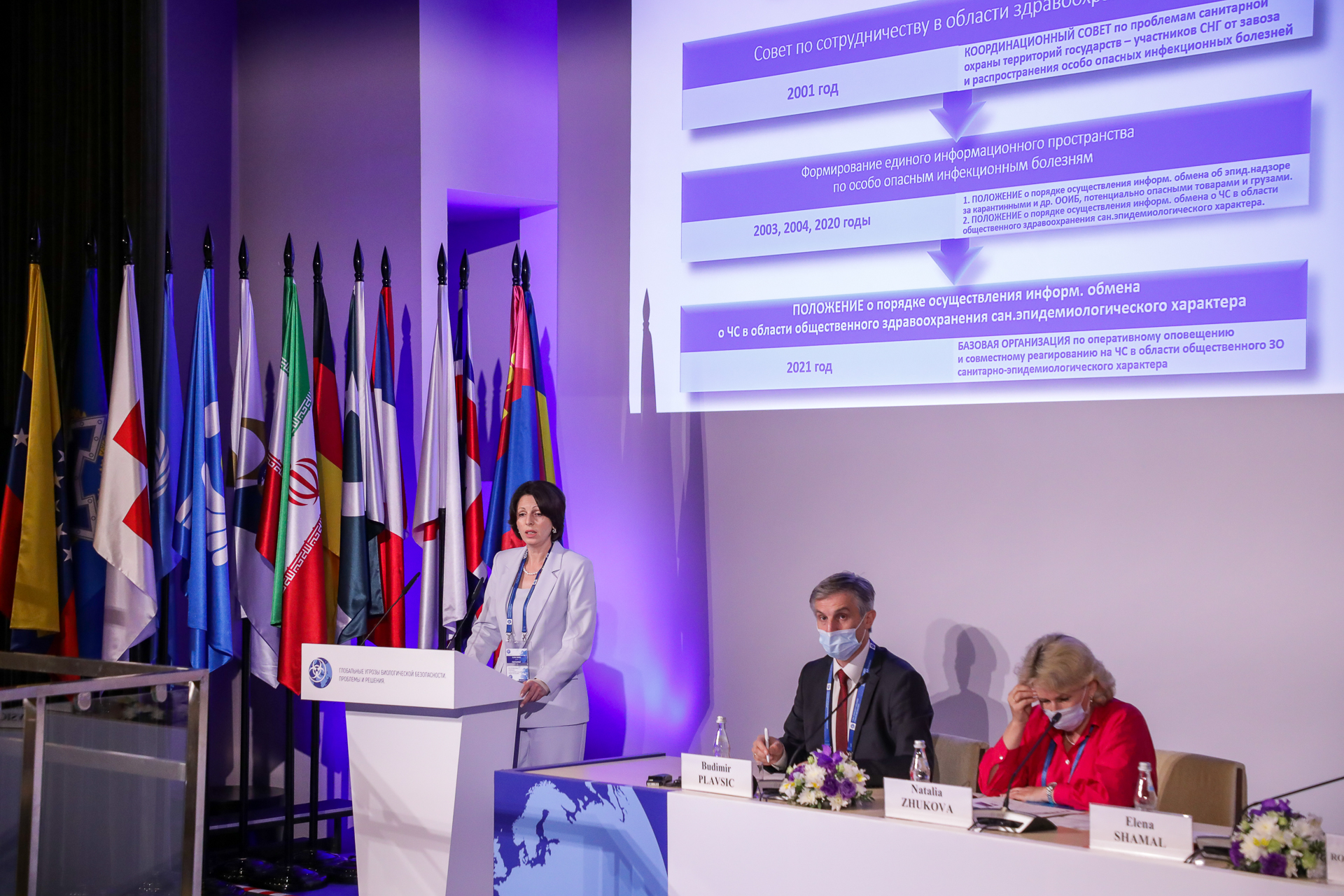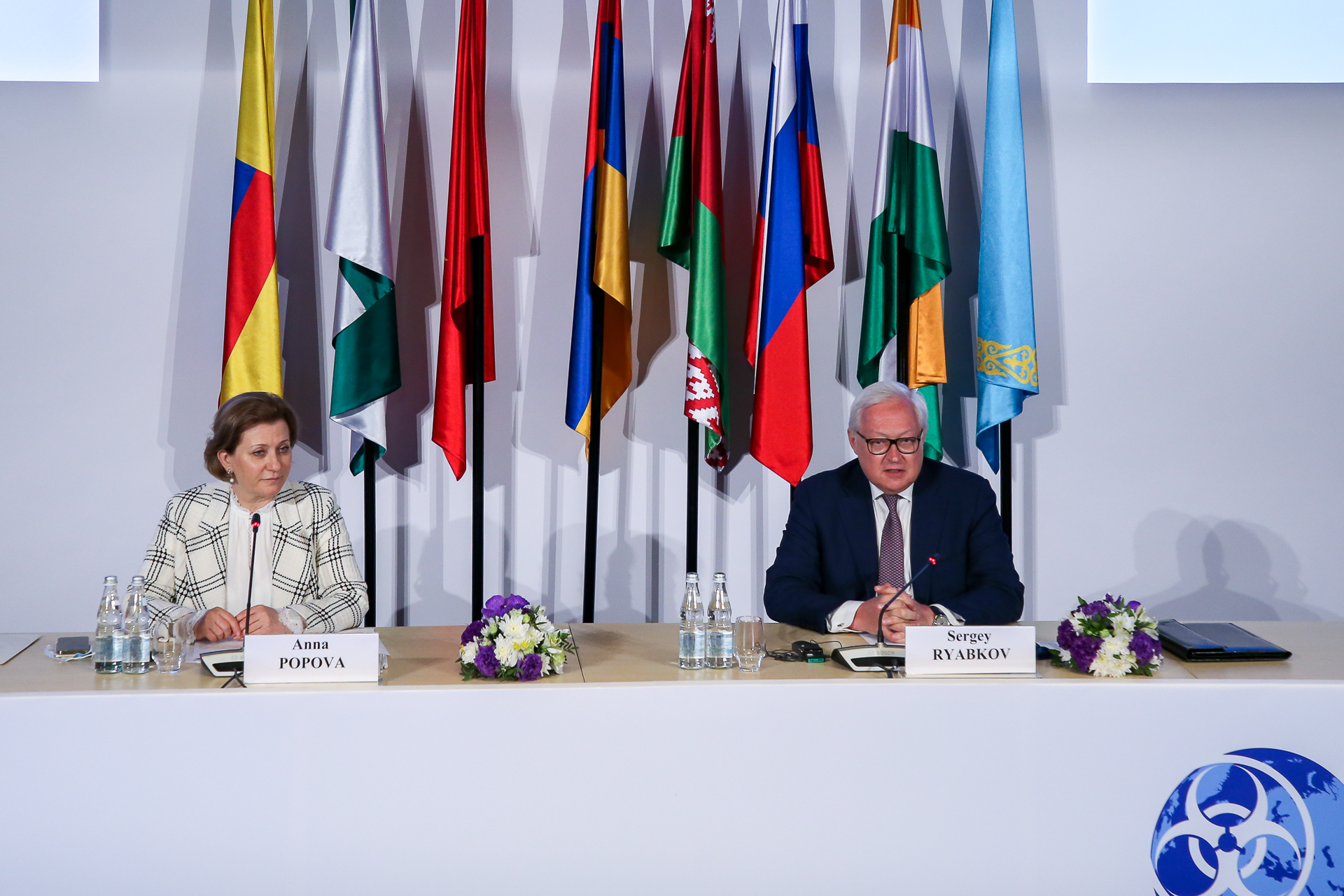SOCHI, 25th of June./OIE/ OIE Regional Representative for Europe Dr Budimir Plavsic took part in the 3rd International Scientific Conference “Global Biosecurity Challenges: Problems and Solutions” hosted in Sochi by the Russian Federal Service for Surveillance on Consumer Rights Protection and Human Wellbeing (Rospotrebnadzor) and The Ministry of Foreign Affairs of the Russian Federation.
On behalf of OIE Director General, Dr Monique Eloit, he thanked organizers for their kind invitation, congratulated on the excellent organization and high level of participation, both in the conference venue and online, and presented the OIE Biological Threat Reduction Strategy, adopted in 2015.
He informed participants that animal diseases including zoonoses continue to have a significant impact on public health, animal health, food safety, food security, the environment and economy, which is clearly demonstrated on large scale during the current pandemic. Although most disease outbreaks and food contaminations occur naturally, there is also a real risk that disease may be introduced into susceptible human or animal populations following a deliberate or accidental release of an infectious agent or toxin, carrying a special risk and higher negative impact because pathogens may be engineered or released in such a way as to make them more harmful.
Courtesy: Rospotrebnadzor Press Office
Dr Plavsic elaborated that animals, domestic and wild, play an important role as biosensors for both emerging diseases and accidental or deliberate releases of infectious agents and toxins, and that strengthening of Veterinary Services to implement sustainable disease monitoring and surveillance systems in all animal populations, is of crucial importance. The response to animal disease by authorities is the same whether it is directed against natural infection, or deliberate or accidental release, and will significantly contribute to efforts to implement Biological and Toxin Weapons Convention activities.
Courtesy: Rospotrebnadzor Press Office
He also explained that in the case of zoonotic diseases, coordination of the animal health and public health response is essential, and control is often best focused on eliminating the pathogen in the animal source. Dr Plavsic underlined the importance of the One Health approach to ensure high level of biosecurity on the planet, because of interconnection between human, animal and environmental health, and reported on recent establishment of One Health mechanism in Europe between OIE, WHO and FAO.
The most effective and sustainable way to protect against threats from animal pathogens is to strengthen existing systems for surveillance, early detection and rapid response, biosafety and biosecurity, whilst fostering scientific networks. OIE international standards, properly implemented by Member countries who adopted them, will ensure implementation of our biosafety vision: a world that is safe and secure from the accidental and deliberate release of animal pathogens, including zoonoses. This approach has multiple collateral benefits for animal health, agriculture, public health, poverty alleviation, animal welfare, and economies.
It is obvious that there is no such thing as a national solution to a global crisis caused by pandemic diseases, and that durable control is only possible through an international, multilateral approach, and a collaborative response. Only acting together we could meet a vision of the world that is safe and secure from the accidental and deliberate release of animal pathogens, including those of zoonotic and pandemic potential and ensure achieving of the Sustainable Development Goals of the United Nations, summed up Dr Plavsic.
Courtesy: Rospotrebnadzor Press Office
Dr Anna Popova, Russian Federal Service for Surveillance on Consumer Rights Protection and Human Wellbeing’s Head delivered a speech during the plenary session of the conference and marked that the Indian Delta COVID-19 strain has spread to almost 90 countries across the world. The President of Russian Federation Vladimir Putin sent greetings to the participants and organizers of the conference. “Ensuring biological security is highly relevant in the modern world, and joint efforts of the entire international community are crucial for achieving it. The coronavirus pandemic has fully confirmed this”, the message reads.




